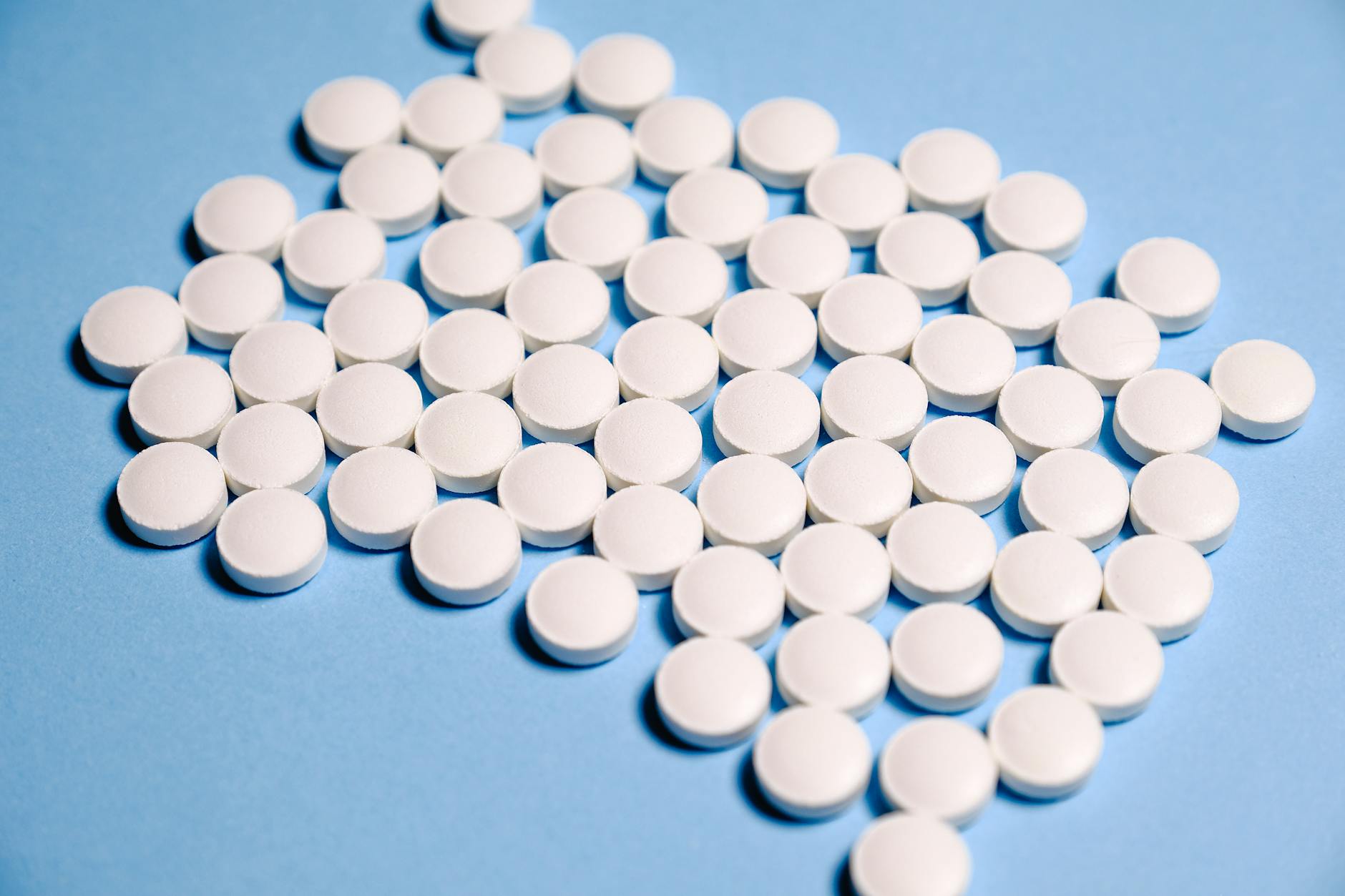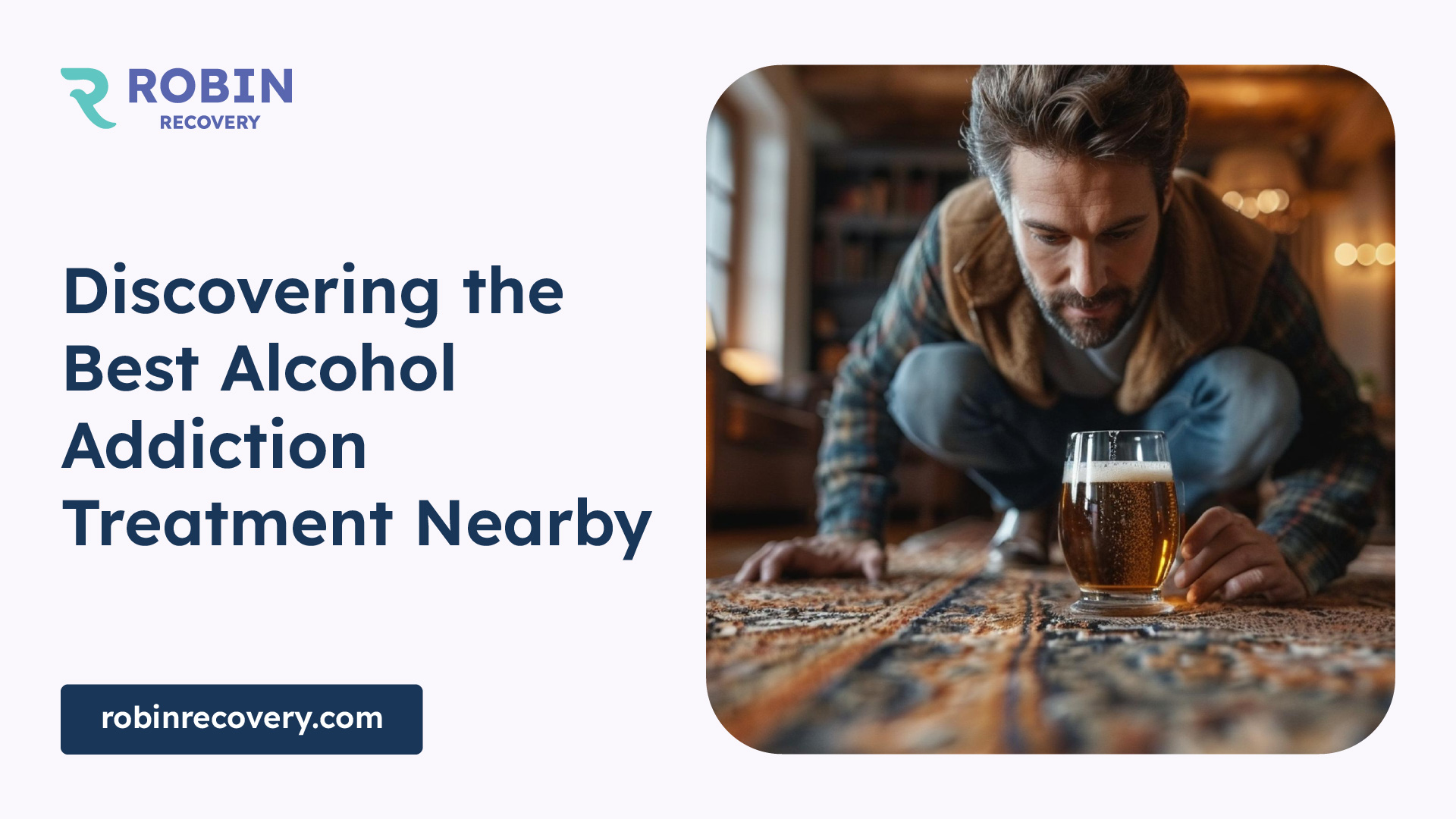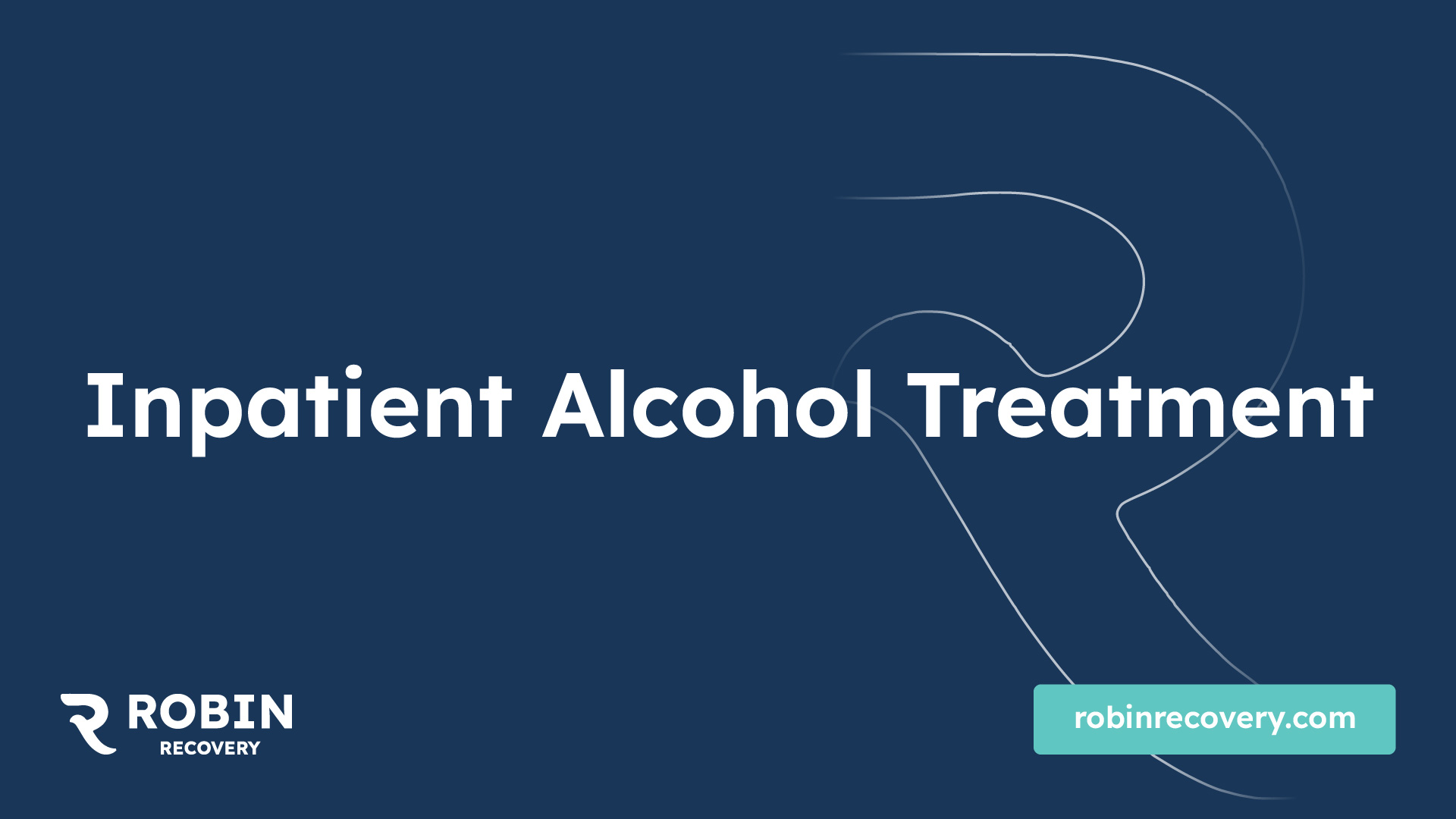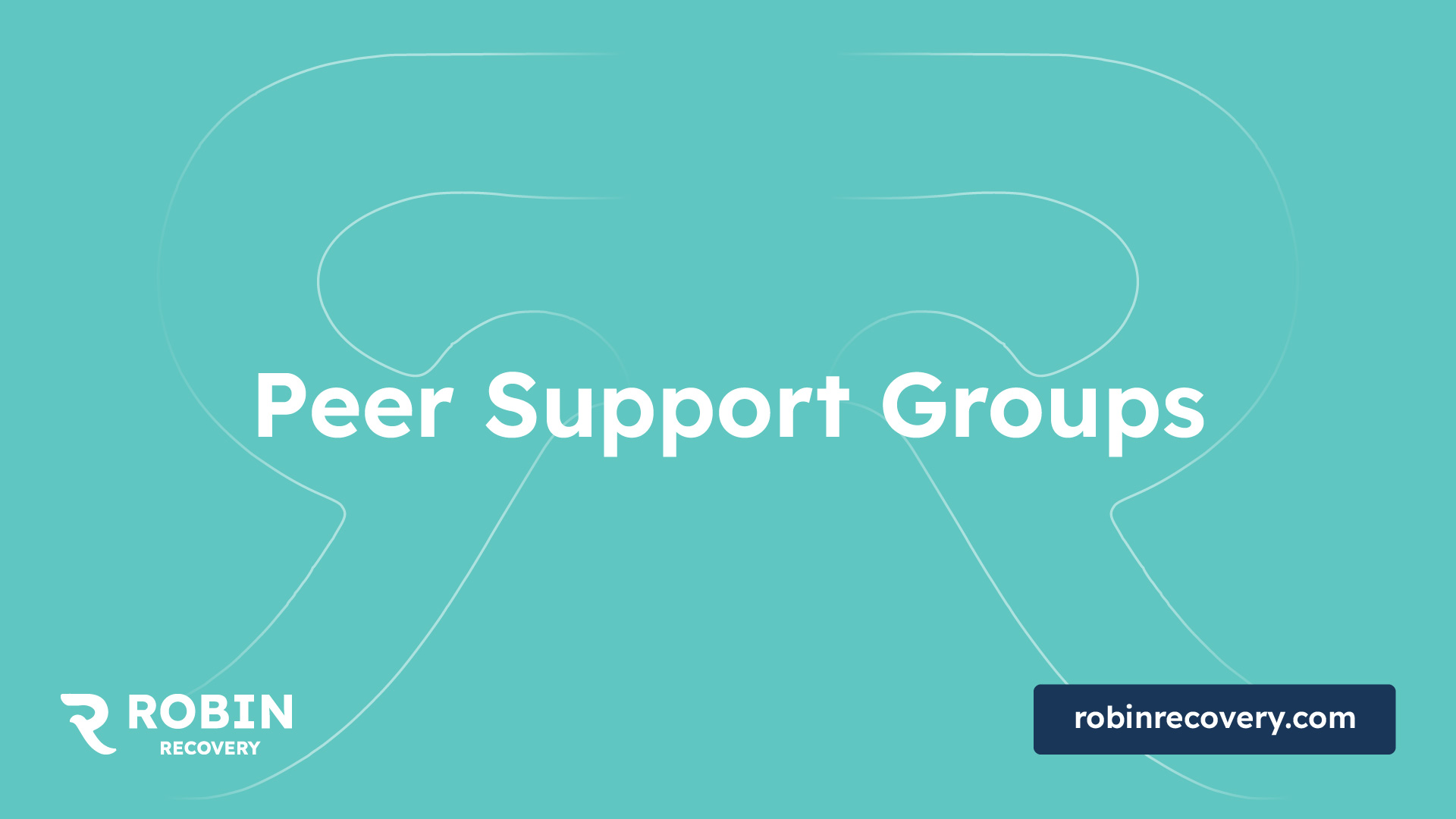Discovering the Best Alcohol Addiction Treatment Nearby


Understanding Addiction Treatment
When it comes to addressing alcohol addiction, understanding the importance of seeking help and knowing the available resources are crucial steps towards recovery.
Importance of Seeking Help
Recognizing and acknowledging the need for help is the first significant step on the path to recovery. Alcohol addiction is a complex disorder that can have severe physical, psychological, and social consequences. Seeking professional help is essential because:
- Expert Guidance: Qualified professionals have the knowledge and experience to guide individuals through the recovery process. They can assess the severity of the addiction, develop personalized treatment plans, and provide the necessary support and counseling.
- Medical Assistance: Alcohol addiction can result in physical dependence, making it challenging to quit without medical intervention. Treatment facilities can provide medically supervised detoxification to manage withdrawal symptoms and ensure safety during this critical phase.
- Behavioral Therapy: Effective addiction treatment involves addressing the underlying psychological and behavioral factors contributing to alcohol use disorder. Therapies such as cognitive-behavioral therapy (CBT) and motivational interviewing can help individuals develop healthier coping mechanisms and explore the root causes of their addiction.
- Peer Support: Connecting with others who have experienced or are experiencing similar challenges can be immensely beneficial. Support groups, such as Alcoholics Anonymous (AA) or SMART Recovery, provide a sense of community, understanding, and encouragement throughout the recovery journey.
- Long-Term Recovery: Alcohol addiction is a chronic condition that requires ongoing management and support. Seeking professional help increases the likelihood of long-term recovery success and reduces the risk of relapse.
To find the most appropriate treatment options and support, individuals can reach out to the SAMHSA National Helpline at 1-800-662-HELP (4357). This helpline provides confidential information, support, and referrals to local treatment facilities and support groups. Additionally, the NIAAA Alcohol Treatment Navigator can assist in identifying evidence-based treatment options for alcohol use disorder.
Available Resources
There are numerous resources available to assist individuals in their journey towards alcohol addiction recovery. These resources include:
- State-Funded Addiction Programs: State-funded drug and alcohol rehab services are provided free of charge to individuals who cannot afford treatment or lack sufficient insurance coverage. These programs offer various levels of care, including detoxification, residential treatment, and outpatient services. To explore state-funded treatment options in your area, visit our article on SAMHSA grants for substance use treatment.
- Private Treatment Centers: Private treatment centers offer a range of specialized programs designed to address alcohol addiction. These centers provide comprehensive care, including medical detoxification, individual and group therapy, holistic approaches, and aftercare support. It's important to research and select a reputable treatment center that aligns with individual needs and preferences.
- Outpatient Programs: Outpatient alcohol treatment programs provide flexibility for individuals to maintain their regular routines while receiving treatment. These programs offer counseling, therapy sessions, and support group meetings, allowing individuals to address their addiction while also attending to their daily responsibilities. Factors such as program intensity and duration can vary based on individual needs and progress. It's important to consider factors affecting outpatient costs, such as insurance coverage and geographical location. For more information, refer to our article on entering treatment during the coronavirus pandemic.
- Peer Support Groups: Peer support groups, such as Alcoholics Anonymous (AA) and SMART Recovery, play a vital role in the recovery process. These groups provide a supportive environment where individuals can share their experiences, gain insights from others, and receive ongoing encouragement. Different peer support options are available, allowing individuals to choose the approach that resonates with them. To explore support group options, refer to our article on couples drug treatment centers near me.
By recognizing the importance of seeking help and utilizing the available resources, individuals can begin their journey towards alcohol addiction recovery. It's crucial to approach treatment with a commitment to long-term well-being and to take advantage of the support systems available. Remember, recovery is possible with the right support and a willingness to make positive changes.
State-Funded Addiction Programs
For individuals seeking alcohol addiction treatment near them, state-funded addiction programs can be a valuable resource. These programs are designed to provide free or low-cost treatment options for individuals who may not have the financial means or sufficient insurance coverage to access private facilities. Let's explore the overview of state support and the levels of care offered within these programs.
Overview of State Support
State-funded drug and alcohol rehab services are provided free of charge to individuals who cannot afford treatment or lack sufficient insurance coverage. These programs are funded through various sources, including federal grants from the Substance Abuse and Mental Health Services Administration (SAMHSA), Medicaid reimbursements, and state budgets. It's important to note that the level of support and eligibility requirements can vary across states.
State-funded rehab programs aim to make addiction treatment accessible to those who may not be able to afford private facilities. These programs employ certified professionals and provide evidence-based therapies, ensuring individuals receive quality care [1]. While the amenities and services offered may not be as extensive as those in private facilities, the focus remains on providing effective treatment and support.
Levels of Care Offered
State-funded rehab programs offer various levels of care to cater to the diverse needs of individuals seeking addiction treatment. These levels of care include:
- Residential Treatment: Residential programs provide a structured environment where individuals reside onsite for a specified duration. This level of care is suitable for individuals requiring intensive support and monitoring.
- Outpatient Treatment: Outpatient programs allow individuals to receive treatment while still living at home. This option provides flexibility and enables individuals to continue their daily responsibilities such as work or school.
- Partial Hospitalization: Partial hospitalization programs offer a higher level of care than outpatient treatment. Individuals typically spend several hours a day in a treatment facility and return home in the evenings.
- Intensive Outpatient: Intensive outpatient programs involve frequent therapy sessions and support groups. This level of care is suited for individuals who require structured treatment but do not need 24/7 supervision.
- Aftercare Services: State-funded rehab programs often provide aftercare services to support individuals in their recovery journey. These services may include ongoing counseling, support groups, and access to community resources.
The availability of these levels of care may vary depending on the specific state-funded program. It's important to research and reach out to local resources to understand the treatment options available in your area.
State-funded addiction programs play a vital role in making addiction treatment accessible to individuals who may not have the financial means to access private facilities. By providing evidence-based therapies at low or no cost, these programs offer a lifeline to those in need. To explore more treatment options, you may also consider couples drug treatment centers near you if applicable.

Inpatient Alcohol Treatment
For individuals struggling with alcohol addiction, inpatient alcohol treatment provides a structured and supportive environment for recovery. Inpatient treatment typically involves a comprehensive approach that includes detoxification, therapy, and ongoing care. In this section, we will explore the detoxification process and the length of inpatient treatment.
Inpatient Detoxification Process
Inpatient detoxification is an essential first step in the treatment of alcohol addiction. It involves around-the-clock medical supervision, support, and observation for individuals experiencing alcohol withdrawal symptoms. During this process, healthcare professionals may administer certain medications to keep patients safe and comfortable. Detoxification helps rid the body of alcohol and manage withdrawal symptoms, which can range from mild to severe.
The detoxification process in an inpatient setting ensures that individuals receive the necessary medical care and support during this critical phase of recovery. It allows for monitoring of vital signs, addressing any complications that may arise, and providing emotional support to help individuals navigate the challenges of alcohol withdrawal.
Length of Inpatient Treatment
The length of inpatient alcohol treatment can vary depending on the individual's needs and progress. Research suggests that a longer duration of treatment leads to more favorable outcomes. For significant reduction or cessation of alcohol use, studies support treatment courses of three or more months. In fact, lengthier courses of treatment, such as 90 days or more, have been shown to have more positive treatment outcomes [2].
Inpatient treatment provides an immersive and intensive approach to addressing alcohol addiction. It allows individuals to focus solely on their recovery, away from the triggers and temptations of their everyday lives. The structured environment of inpatient treatment offers a supportive community and access to a range of therapeutic interventions, including individual counseling, group therapy, and educational programs.
Moreover, inpatient alcohol rehabs recognize the complexities of alcohol use disorder and often provide treatment for individuals with co-occurring mental health conditions or dual diagnoses. This approach acknowledges the importance of addressing both the addiction and any underlying mental health issues to promote long-term recovery [2].
Inpatient alcohol treatment offers a comprehensive and holistic approach to recovery, providing individuals with the tools, support, and care needed to overcome alcohol addiction. It is important to consult with healthcare professionals and addiction specialists to determine the most suitable treatment plan based on individual needs. For more information on different treatment options, including outpatient programs, refer to our article on outpatient alcohol treatment.
Outpatient Alcohol Treatment
For individuals seeking alcohol addiction treatment, outpatient programs offer a flexible and effective approach to recovery. Outpatient rehab allows patients to receive treatment while still living at home and maintaining their daily responsibilities. It can encompass a variety of therapeutic interventions and services, catering to the unique needs of each individual [3].
Flexibility of Outpatient Programs
One of the key advantages of outpatient alcohol treatment is its flexibility. Patients have the freedom to attend therapy sessions and receive support while still fulfilling their work or school commitments. This flexibility allows individuals to integrate treatment into their daily lives, making it more manageable and sustainable for long-term recovery.
Outpatient programs offer a range of therapeutic interventions and support services, including group and individual counseling, family therapy, education sessions, occupational or recreational therapy, psychotherapy, and medication-assisted treatment [3]. These services are tailored to address the specific needs and goals of each person in recovery.
Factors Affecting Outpatient Costs
The cost of outpatient alcohol treatment can vary depending on several factors. These may include insurance coverage, location, facility, level of care, length of care, and additional services provided. Insurance coverage for outpatient treatment may include public insurance programs like Medicaid or Medicare, as well as plans offered through the Affordable Care Act [3].
It is important to note that outpatient treatment is generally as effective as inpatient services, making it a more cost-effective option for many individuals. However, the choice between outpatient and inpatient care depends on factors such as the severity of the substance use disorder, individual preferences, and the recommendations of healthcare professionals. In some cases, individuals may start with inpatient care and transition to outpatient treatment as they progress in their recovery journey.
When considering outpatient alcohol treatment, it is essential to consult with healthcare professionals and treatment providers to determine the most suitable program based on individual needs, goals, and treatment objectives. By accessing the appropriate treatment intensity, professional support, and accountability, individuals can make significant progress in their recovery from alcohol addiction. For more information on treatment options and resources, visit our article on samhsa grants for substance use treatment.

Peer Support Groups
When it comes to alcohol addiction treatment, peer support groups play a crucial role in the recovery journey. These groups provide individuals with a supportive environment where they can connect with others who have experienced similar challenges. Peer support groups offer a sense of camaraderie, understanding, and encouragement, making them a valuable resource for those seeking to overcome alcohol addiction.
Role of Support Groups
Research has shown a correlation between participation in support groups and reduced drinking and cravings. Support groups can provide a safe space for individuals to share their experiences, discuss challenges, and receive emotional support. By actively engaging in a support group, individuals can gain valuable insights, coping strategies, and encouragement from others who have faced similar struggles [4].
One well-known peer support group for alcohol addiction is Alcoholics Anonymous (AA). With over 120,000 groups in approximately 180 countries, AA is widely available and accessible. AA's approach to sobriety centers around the 12 Steps, which include admitting powerlessness over alcohol, believing in a higher power, taking a moral inventory, making amends, and helping others.
Different Peer Support Options
In addition to Alcoholics Anonymous, there are other peer support groups that cater to individuals dealing with alcohol addiction. These groups offer various approaches and philosophies, allowing individuals to find a support system that aligns with their personal beliefs and preferences.
- Dual Recovery Anonymous (DRA): DRA is a 12-step program that focuses on individuals dealing with alcohol abuse and co-occurring mental health issues. DRA recognizes the importance of addressing mental health concerns alongside alcohol abuse, aiming to treat both problems simultaneously.
- Secular Organizations for Sobriety (SOS): SOS offers a nonreligious path to long-term sobriety. This support group focuses on addiction recovery as a separate issue from spiritual beliefs. SOS utilizes the Sobriety Priority approach, which emphasizes acknowledgment of addiction, acceptance, and prioritization of sobriety.
- SMART Recovery (Self-Management and Recovery Training): SMART Recovery is a program that promotes self-empowerment and behavioral change. It utilizes a four-point program, including building motivation, coping with urges, managing thoughts, feelings, and behaviors, and living a balanced life. SMART Recovery sessions can be attended online or in person, and are led by trained volunteers or professionals.
By exploring different peer support options, individuals can find a group that resonates with their specific needs and preferences. Participating in a support group can provide a valuable network of understanding individuals who can offer guidance, encouragement, and practical strategies for maintaining sobriety.
Remember, peer support groups are just one component of a comprehensive alcohol addiction treatment plan. It is important to consult with professionals and consider additional treatment options, such as medication-assisted treatment, counseling, therapy, and state-funded addiction programs, to ensure a holistic approach to recovery.
Recovery Attempts
For individuals struggling with alcohol addiction, the journey to recovery often involves multiple attempts. Understanding the statistics on recovery attempts and the factors that influence recovery success can provide valuable insights and hope for those seeking help.
Statistics on Recovery Attempts
Research indicates that individuals with significant alcohol or drug problems in the United States make an average of 5.35 recovery attempts, with a median of 2 attempts [5]. It's important to note that approximately 13% of the sample reported not making any serious recovery attempts before overcoming their alcohol or drug problem. Among participants who did make recovery attempts, the mean number of attempts slightly increased to 6.14 [5].
Several factors are associated with a higher number of recovery attempts. These include Black race, prior use of treatment and mutual-help groups, and a history of psychiatric comorbidity. Additionally, individuals who were non-Hispanic Black, not married, diagnosed with depressive or anxiety disorders, or had utilized treatment or recovery support services reported a greater number of recovery attempts. On the other hand, age, sex, education, household income, primary substance, and age of onset were not significantly associated with the number of recovery attempts.
The distribution of recovery attempts is broad, positively skewed, and kurtotic, indicating a wide range of experiences. While the statistics may vary from person to person, the findings offer hope to individuals struggling with addiction, suggesting that the number of recovery attempts prior to resolving alcohol or drug problems may be lower than anticipated.
Factors Influencing Recovery Success
Various factors can influence the success of recovery attempts. One significant factor is the quality of life during the recovery process. Research indicates that a greater number of recovery attempts is associated with lower quality of life, happiness, and self-esteem, as well as higher psychological distress. However, it's important to note that when controlling for years since problem resolution, the negative association between recovery attempts and lowered happiness, self-esteem, and recovery capital is nullified. This suggests that the relationship between recovery attempts and these factors may be explained by time in recovery [5].
While the statistics on recovery attempts provide insights, it's crucial to remember that each individual's recovery journey is unique. Factors such as individual motivation, access to treatment and support, the presence of a strong support system, and the utilization of evidence-based treatment approaches all play a role in recovery success. Seeking professional help and engaging in comprehensive addiction treatment programs can greatly increase the chances of successful recovery.
References
[1]: https://americanaddictioncenters.org/rehab-guide/state-funded
[2]: https://americanaddictioncenters.org/alcohol/rehab-treatment/inpatient
[3]: https://americanaddictioncenters.org/rehab-guide/outpatient-treatment
[4]: https://www.helpguide.org/articles/addictions/aa-and-other-peer-support-groups-for-alcohol-addiction.htm
